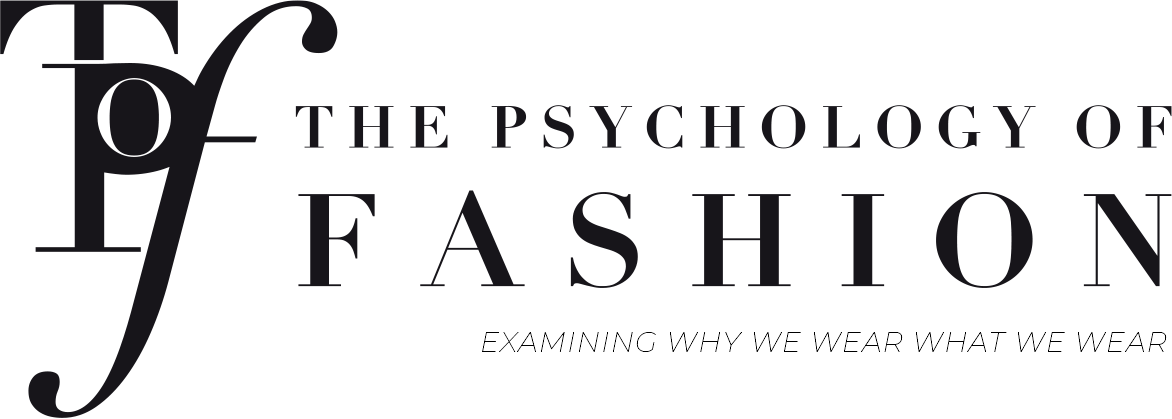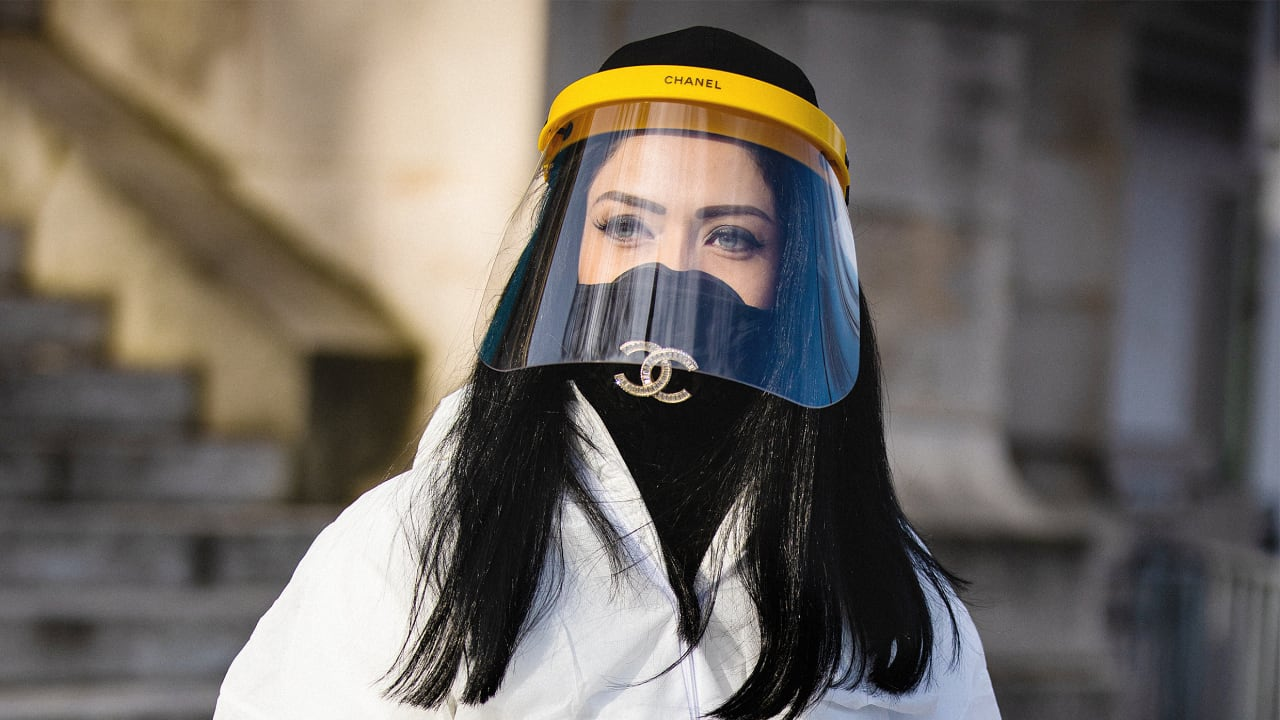As face coverings become the new normal, they are having a profound psychological effect on society and the individual. Seemingly just functional, they are having other unexpected effects – creating distance, perhaps reinforcing fears, and becoming a way to make a statement, whether a fashion or political one.
To give a bit of contemporary context, decorative face coverings were a part of the Marine Serre Fall 2020 Ready-to-Wear runway, as well as streetwear and rave fashion before they were a staple in most of our wardrobes. Now mainstream, patterned cloth face masks have popped up for sale everywhere from Alice and Olivia to independent designers on Etsy. Fans can find face coverings that show off their favorite sports teams or pop culture characters. Revolve sells a number of stylish face masks, some of which stretch the definition of “protective.” Other designers have semi-jokingly released “trikinis” (bikinis with matching face masks) and face coverings with a hole for sipping through a straw.
This buoyant response to face masks-turned-fashion-accessory have caused critics to decry capitalizing on a public health necessity, but the important goal is to normalize masks and make people want to wear something that is a visual and physical reminder of the crisis we’re in. The growing attitude is that if we have to wear these face coverings for the long term, we might as well have some fun with them.
Face mask production is a natural pivot for many retailers whose businesses have suffered during the pandemic, especially as more governments are mandating wearing cloth face coverings in public. This has also presented an opportunity for companies to do good. And as a result, we’ve seen that many retailers have decided to donate face masks and a portion of their proceeds to medical professionals and communities in need.
The face mask itself is becoming a political statement. The decision to wear one or not wear one signals certain ideological affiliations and principles to the public. In a Guardian article, Dr. Simon Kolstoe said that there is limited evidence on the effectiveness of cloth masks, but that wearing a mask could be a statement of solidarity and concern for others. It has also been found that those with social anxiety are more receptive to the face masks, as are individuals who wish to have anonymity, like protesters. For others, not wearing a mask signals one’s personal rebellion against government orders that they believe are infringing upon their freedom; ultimately embroiling a battle between science and civil liberties.
Across the world people are having issues grappling with the new normal. While Prime Minister Boris Johnson’s administration is recommending the use of face masks, Johnson himself compared the face-covering veils of burkhas to “looking like a bank robber” back in 2018. China and other Asian countries have adapted more naturally, because face masks have been common there for decades; most notably since the SARS epidemic in 2002. This comparison highlights a period of adjustment for places like the US and the UK, where individuals are having a harder time agreeing on what the face masks mean in our everyday lives. It makes sense that there would be so many mixed views.
Before we see a uniform perception of facemasks, we may see the psychological impact on how we interact with others that the widespread wearing of face coverings is bound to have. According to Psychology Today, our brains take only about “13 thousandths of a second” to determine the attractiveness of another person’s face and that the eye and that mouth areas are the most important facial features for correctly interpreting emotions. Ergo, covering the lower half of the face is bound to increase non-verbal miscommunication. Beyond that, another study showed that hiding half of your face actually increases your appeal to others. The study’s authors, Javid Sadr and Lauren Krowicki, theorized that, when half of the face is concealed, we are forced to fill in the missing features, which we assume to be more attractive. Maybe we’ll experience this effect once we emerge from quarantine starved for human connection. Or the face coverings that are our symbolic shield against spreading infection among others could increase barriers and alienation.
Mask-wearing is also impacting our facial appearances in terms of cosmetics. In China, Alibaba reported that eyeshadow sales increased by 150 percent during the week of February 18 due to the popularity of “mask makeup looks” on social media. In the United States, eye makeup sales increased by five percent and lip care and lip color sales dropped by 15 percent year-over-year in the four weeks ending April 11, according to McKinsey. With masks obscuring such a large portion of the face, women may focus more on eye makeup, earrings, and hair.
But what’s most interesting psychologically speaking, whether a mask is Off-White or off-the-pharmacy stand, why is it that some people choose not to wear masks while others do? It probably comes down to how conscientious someone is. Conscientious people are bound to duty, rules, and erring on the side of caution. They recycle diligently, floss, and never file a tax return late. People that are lower on the conscientiousness spectrum (take our test below to find out where you sit!) like to feel free and unrestrained by what they “should” be doing. And, well, should you be? That’s a personal decision, and also a little bit up to your government.
However you spin it, donning a face mask is bound to be both physically and psychologically uncomfortable. But we can either let the masks strip us of our individuality, or we can let them become a new form of self-expression. Or a chance to finally perfect winged eyeliner.












In the world of post-pandemic dressing, one word has taken social media by storm: cheugy (pronounced: chew-gee). In the worlds of fashion and lifestyle, cheugy describes a look, a thing or a person that’s considered out of date.